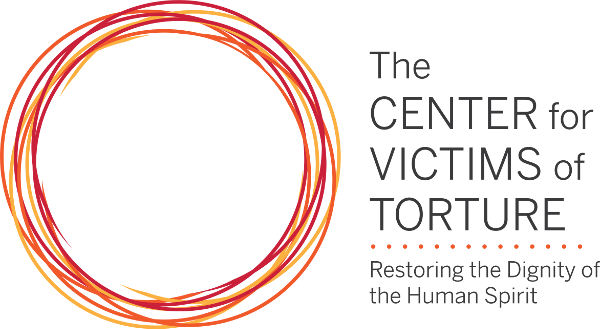
Center for Victims of Torture: Manal’s story
By AdministratorPeople who have been on social media or watched the news hopefully have seen the pictures of masses of refugees fleeing the civil war in Syria. Men, women, and children seeking to escape war and torture going anywhere that seems safe, no matter how dangerous the journey. For some like Manal, a nurse from Damascus, and her husband, that means making the trip across a war-torn country to cross the border into Jordan.
Manal was a nurse in a government-run hospital in Damascus. Her professionalism and humanity would not allow her to turn away injured members of the opposition to the government forces. When prevented from doing so by other medical officials or government officials, her dedication to healing led her to decide she could no longer continue to work at that hospital. Due to her humane treatment of the, she was removed forcibly from her house in the middle of the night by regime forces in nothing but her nightclothes.
What followed was a nightmare that most of us in the rest of world cannot imagine. She was held in a women’s prison for days, listening to the screams of other prisoners. Her captors interrogated her for one hour only – focusing on why she would treat the opposition force’s wounded. Then she was sent her back to her cell to wait for what was to come. Fortunately, Manal’s brothers had been busy trying to free her and, after bribing the prison officials, she was set free before she could be subjected to worse.
 Even before Manal had been detained, her husband had been arrested for helping Syrian citizens fleeing to what they hoped was the safety of the city of Damascus. His crime was providing food, milk, and diapers to his fellow citizens. Manal and her husband were fortunate enough to escape where many others were not and made their way to Jordan and were able to receive help from the Center for Victims of Torture (CVT). Refugees from war-torn countries often carry the physical and mental wounds of torture and, even if they reach somewhere safe, have trouble healing those wounds and moving on into a new life. This is why organizations like CVT are so important.
Even before Manal had been detained, her husband had been arrested for helping Syrian citizens fleeing to what they hoped was the safety of the city of Damascus. His crime was providing food, milk, and diapers to his fellow citizens. Manal and her husband were fortunate enough to escape where many others were not and made their way to Jordan and were able to receive help from the Center for Victims of Torture (CVT). Refugees from war-torn countries often carry the physical and mental wounds of torture and, even if they reach somewhere safe, have trouble healing those wounds and moving on into a new life. This is why organizations like CVT are so important.
Today, CVT helps refugees internationally as well in the Middle East and Africa. In refugee camps and in war-torn countries, mental health services, so crucial for people who have been subjected to torture, can be in short supply. CVT not only provides these services but trains others and provides access to research and training materials so that when CVT must leave an area, services can continue in the long term. CVT’s more than 30 years of experience and research into the best methods of treating the aftermath of torture are freely shared with other torture rehabilitation centers so that more people can be reached. Center for Victims of Torture’s arsenal to improve the quality of life is essential for refugees returning to a functioning part of society after fleeing torture and war across the world.
